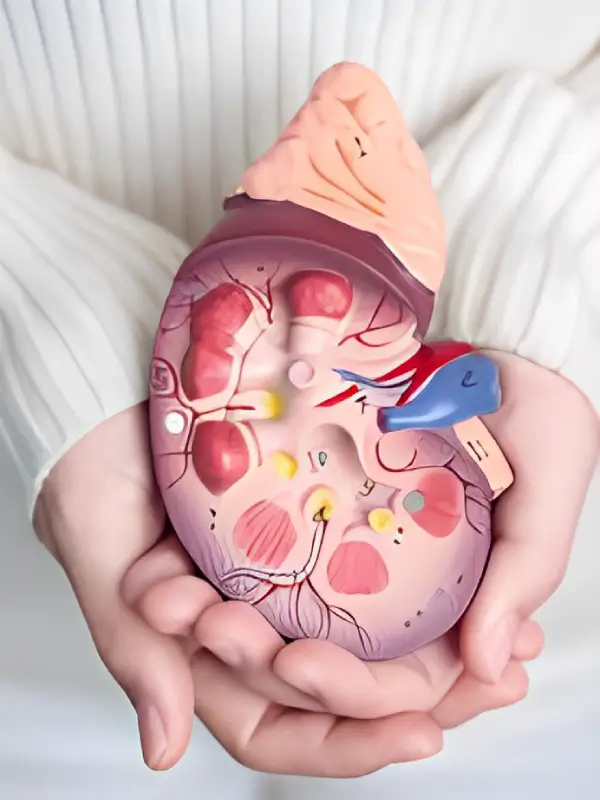Urosurgery
Offering comprehensive urological care including diagnostics, treatments, and surgeries for conditions affecting the urinary tract and male reproductive system.
Home : : Urosurgery
Urosurgery
Offering comprehensive urological care including diagnostics, treatments, and surgeries for conditions affecting the urinary tract and male reproductive system.
Home : : Urosurgery

Department of Urosurgery
At Indotaj Medical Center in Tajikistan, we pride ourselves on delivering exceptional comprehensive care for both adult and pediatric urological concerns. Our institution boasts a proficient team of surgeons equipped with cutting-edge medical technology, dedicated to offering a full spectrum of services within the urology department.
Our surgeons specialize in various fields such as renal transplantation, uro-oncology, reconstructive urology, endo-urology, and neuro-urology, encompassing urodynamic facilities. Additionally, we cater to andrology, addressing male infertility and erectile issues, along with providing expertise in female urology and pediatric urology.
Indotaj Medical Center excels in successfully treating a range of urological conditions including urinary tract infections, kidney stones, prostate problems, and bladder control issues. Our center is committed to a comprehensive diagnostic approach before commencing treatment.
Treatments
The Indo Taj Medical Center in Tajikistan provides exceptional care and treatment for Urosurgery
Diagnostic Cystoscopy
Pyialithotomy/Phyloplasty
Nephrectomy
Striclure Urethra
Extracorporeal Shock Wave Lithotripsy (ESWL)
Percutaneous Nephrolithotomy (PCNL)
Trans Urethral Removal of Bladder Tumour (TURBT)
Ureteroscopy/Ureterorenoscopy (URS)
Radical Cystectomy / Neobladder
Our Team of Medical Experts
Experience comprehensive, integrated care across key specialties at Indo Taj Medical Center in Tajikistan. Access certified specialists and experienced doctors round-the-clock, all under one roof.

Dr. Amey Patil
Urologist

Dr. Dinesh Mahajan
Nephrologist
Frequently asked questions
What does a urologist do?
Urologists are medical professionals specialized in diagnosing and treating diseases or conditions involving the kidneys, ureters, bladder, urethra, and male reproductive organs. They perform surgeries, prescribe medications, and provide various treatments for conditions like kidney stones, urinary tract infections, prostate issues, and more.
What are some common urological surgeries?
Common urological surgeries include procedures for kidney stones (such as lithotripsy or stone removal), prostate surgeries (like TURP – Transurethral Resection of the Prostate), surgeries for bladder issues (cystoscopy, bladder repair), surgeries for urinary incontinence, and treatments for male infertility or erectile dysfunction.
When should someone see a urologist?
It’s advisable to consult a urologist if you experience symptoms related to urinary problems (such as frequent urination, pain during urination, blood in urine), kidney issues (pain in the flank or back, kidney stones), male reproductive health problems (erectile dysfunction, infertility), or if your primary care physician suggests a referral based on test results or concerns.
What happens during a urological surgery?
The specifics vary depending on the type of surgery required. Generally, the patient will undergo preoperative evaluations, receive anesthesia, and then the urological surgeon will perform the necessary procedure. After surgery, there is a recovery period that involves postoperative care and follow-up appointments.
What are the risks associated with urological surgery?
As with any surgical procedure, there are potential risks such as bleeding, infection, adverse reactions to anesthesia, blood clots, or damage to surrounding organs. Your urologist will discuss the specific risks associated with your surgery and how they can be minimized.
How long is the recovery time for urological surgery?
Recovery time can vary depending on the type and complexity of the surgery. Some procedures may have a shorter recovery period, while others might require weeks or months for complete recovery. Your doctor will provide detailed postoperative instructions and guidelines for a smooth recovery.
Fill the form and our team will get back to you within 24 hours



